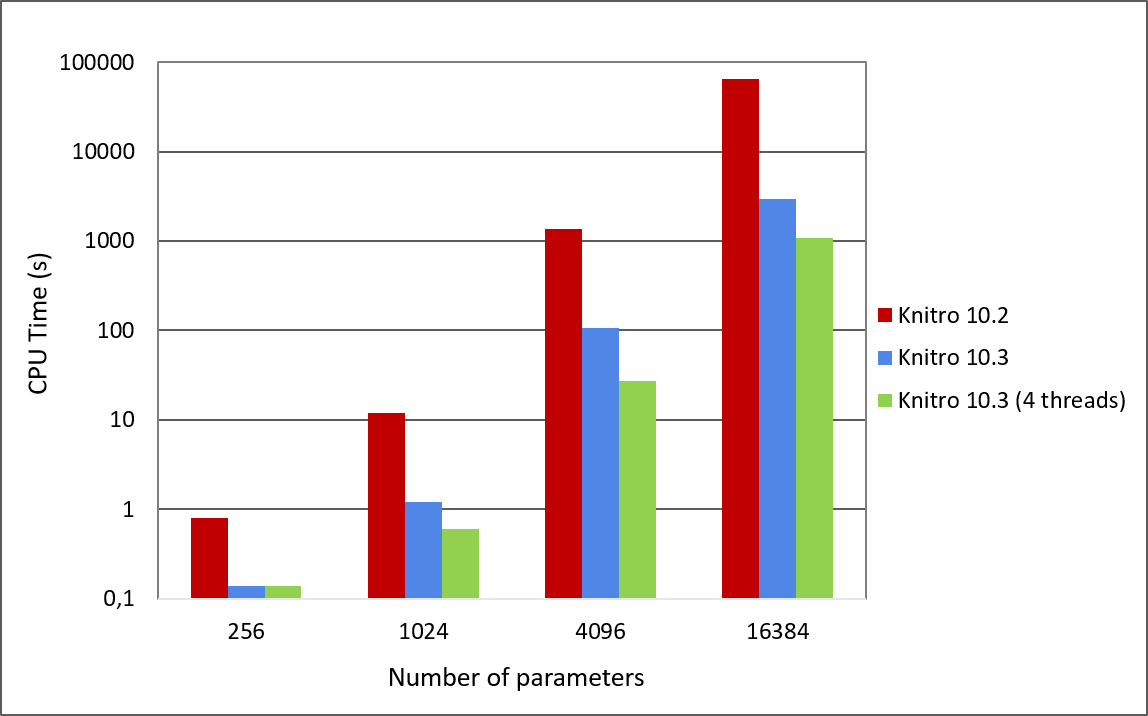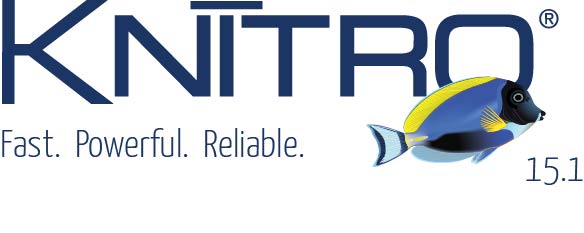Artelys Knitro 10.3: support for Python 3 and improved performance!
From a numerical perspective, large speedups are to be seen on some classes of ill-conditioned models. This is due to new preconditioning techniques applied to the subproblems solved by conjugate gradient method in the Knitro interior-point/barrier algorithms. Furthermore, Artelys Knitro 10.3 offers several improvements to the internal linear algebra and linear solvers used internally for better robustness and efficiency.

Exponential speedups on selected nonlinear least square instance
Additional features:
• Significant improvements in large-scale least-squares models, solving the instances 10 times faster!
• Improvements in the “feasibility restoration phase” used when Knitro is struggling to get feasible allowing faster detection of infeasible models.
• Overall efficiency and robustness improvements on general nonlinear models as well as significant improvements in efficiency on models with integer variables.

Artelys Knitro 15.1: Solve your toughest pooling applications!
Artelys releases Knitro 15.1, bringing a new wave of performance upgrades and usability improvements to help you solve large-scale optimization problems faster than ever.

Artelys contributes to SNCF Voyageurs’ OPTIPLACE project
Artelys is contributing to the development and industrialisation of the OPTIPLACE project, which aims to improve passenger seating arrangements on Ouigo trains by developing the optimisation module used for seat assignment.

Swissgrid selects Artelys Crystal Super Grid
Artelys is pleased to announce that Swissgrid, the Swiss electricity Transmission System Operator (TSO), has selected Artelys Crystal Super Grid, our multi-energy simulation solution, to support their strategic planning and system analysis activities.

Artelys led the Assessment of Policy Options for Securing Inertia for the European Commission
The European Commission’s Directorate-General for Energy (DG ENER) selected Artelys (leader), Trinomics, and Tractebel ENGIE to study solutions for ensuring the future frequency stability of the European power system. The study report was published in August 2025 by...
subscribe to our newsletters
© ARTELYS • All rights reserved • Legal mentions
